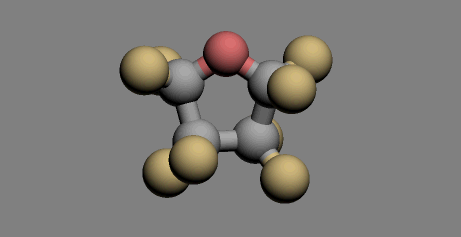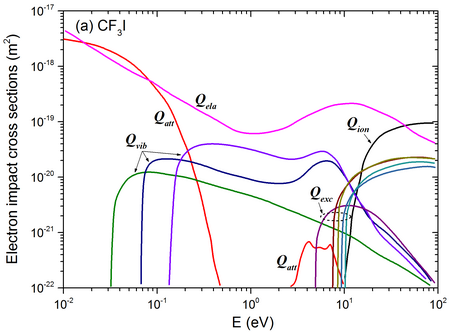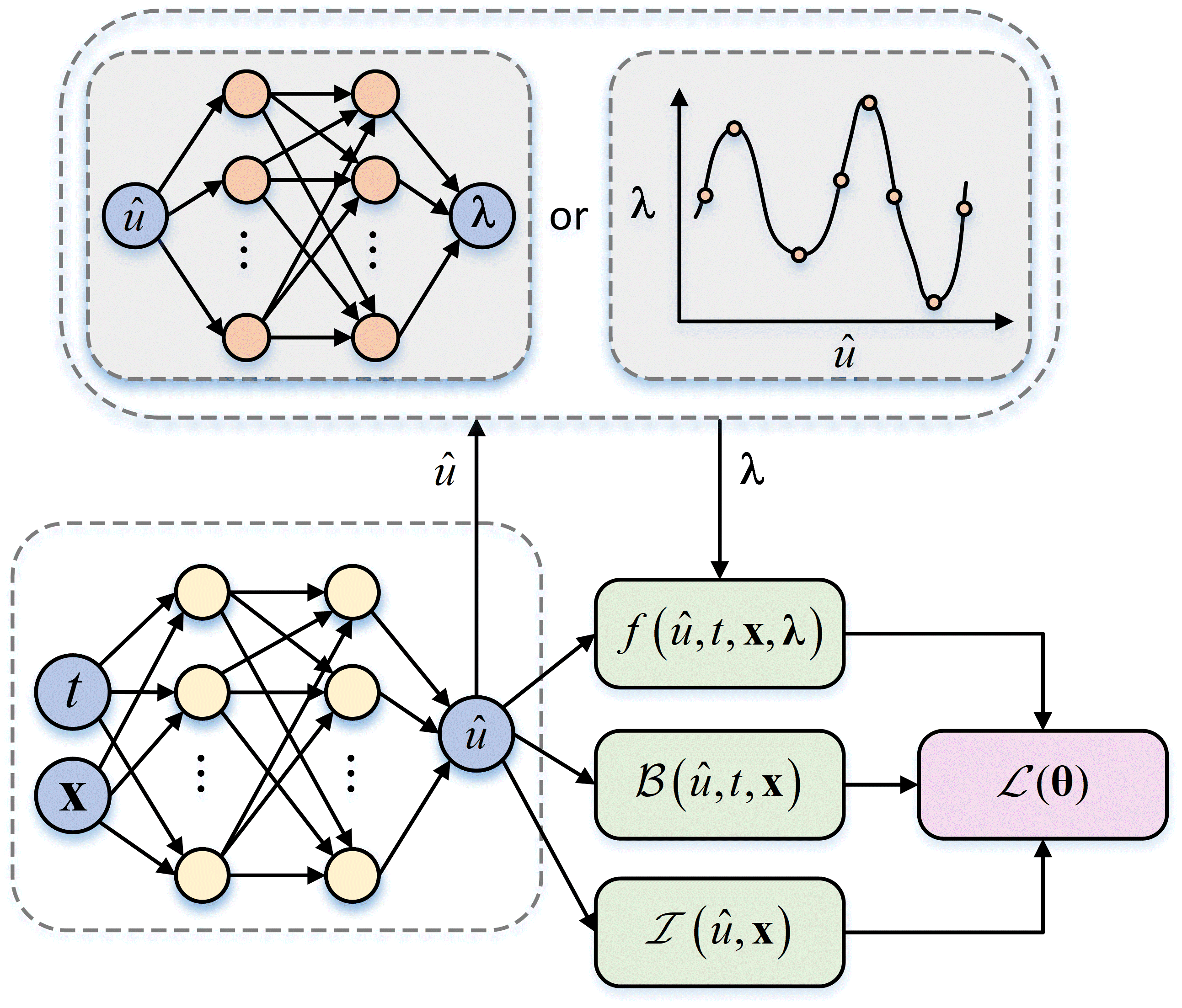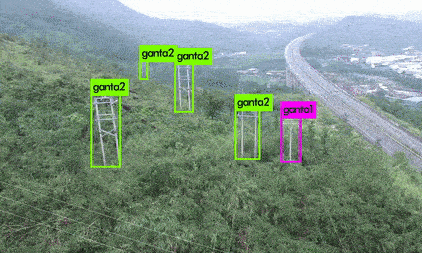Jun. 20 to Jun. 22, 2025:
I attended The 9th International Conference on Power Energy Systems and Applications (ICoPESA 2025) held in Nanjing where I hosted the opening ceremony and gave an invited talk entitled Neural architecture search-based physics-informed neural network for numerical simulation.
May 23 to May 25, 2025:
I attended The 12th Frontier Academic Forum of Electrical Technology (FAFEE 2025) held in Xiamen where I gave an invited talk entitled Numerical simulation and application of plasma based on operator learning.
May 16 to May 18, 2025:
I attended 2025 IEEE 8th International Electrical and Energy Conference (CIEEC 2025) held in Changsha where I worked as a session chair of Smart low-carbon electrical equipment and its operation and maintenance.
Jan. 01, 2025:
I have been promoted to Full Professor since January 01, 2025.
Dec. 29 to Dec. 29, 2024:
I attended The 9th Frontier Interdisciplinary Forum of the Plasma and Application Committee of China Electrotechnical Society held in Wuhan where I gave an invited talk entitled Characteristics of non-equilibrium 2T eco-friendly arc plasmas.
Dec. 06 to Dec. 08, 2024:
I attended The 1st Electrical Artificial Intelligence Conference held in Nanjing. As the technical committee member and session chair, I organized a session of AI-empowered High Voltage and Discharge Plasma Technology.
Nov. 29 to Dec. 01, 2024:
I attended The 5th National Conference on High Voltage and Discharge Plasma (HVDP) held in Xi’an where I gave an invited talk entitled Prediction of doubly differential ionization collision cross sections based on deep operator learning. In this conference, I was also honored with the Nomination of Outstanding Young Scholar by the Plasma and Application Committee of Chinese Electrotechnical Society.
Oct. 11, 2024:
We published a paper on AI-driven cross section prediction. In this paper, we propose Deep Cross Section Network (DeepCSNet), a deep learning approach designed to predict electron-impact ionization cross sections using limited training data. DeepCSNet has two configurations: one tailored for specific molecules and another for various molecules. Both configurations can typically achieve a relative L2 error less than 5%. Additionally, DeepCSNet shows promising results in predicting cross sections for molecules not included in the training set, even large molecules with more than 10 constituent atoms, highlighting its potential for practical applications.
This paper
is now available on
Plasma Sources Science and Technology.
Sep. 30 to Oct. 04, 2024:
I attended The 77th Annual Gaseous Electronics Conference (GEC 2024) held in San Diego, CA, USA. In the Workshop of Data-driven Plasma Science, I gave an invited talk entitled Physics-informed low-temperature plasma simulation: frameworks and applications.
Sep. 26 to Sep. 28, 2024:
I attended 2024 China Electromagnetic Compatibility and Electromagnetic Environmental Effects Technology and Industry Innovation Conference held in Hefei where I gave an invited talk entitled Multi-physics modeling based on physics-data fusion and its application in discharge plasma.
Jul. 31, 2024:
We published a review paper on AI-driven low-temperature plasma (LTP) simulation. In this review, we first introduce mainstream LTP simulation models, including kinetic models, fluid models, chemical dynamics models, and hybrid models. We analyze the problems faced by traditional LTP numerical simulation methods from four aspects: model complexity, numerical computation, parameter consistency, and result reliability. Then, we discussed the current research status of AI-driven LTP numerical simulation Finally, from the perspective of convergence and generalization, we summarize the challenges faced by relevant research and proposes further development directions.
This paper
is now available on
High Voltage Engineering.
Jun. 16 to Jun. 20, 2024:
I attended The 51st IEEE International Conference on Plasma Science (ICOPS) held in Beijing where I organized a special session Scientific Machine Learning and its Applications to Plasma Science. In this session, I invited 9 speakers from USA, UK, Japan, and China. In the ICOPS, I also gave an invited talk entitled Physics-informed frameworks for low-temperature plasma simulation.
May 10 to May 12, 2024:
I attended The 12th National Symposium on Atmospheric-Pressure Plasma and Its Application Technology held in Maanshan, Anhui Province, and gave an invited talk entitled Exploration of AI-driven acceleration technology for plasma simulation.
Apr. 04, 2024:
We published a paper on visual classification and detection of power inspection images based on federated learning. In this work, a federated learning (FL) based method for processing power inspection images, which allows different data owners to cooperatively train visual classification and detection models without sharing their local images. To improve the training efficiency, we further propose a Federated Round-level Momentum (FedRM) method by adding a momentum term during the aggregation of model weights. We demonstrate the proposed method in three real-world power inspection image datasets for visual classification, object detection and defect detection tasks respectively
This paper
is now available on
IEEE Transactions on Industry Applications.
Dec. 12, 2023:
I visited Institute of Applied Physics and Computational Mathematics, and gave an invited talk entitled Application and prospect of artificial intelligence in numerical simulation of low-temperature plasma.
Nov. 12 to Nov. 17, 2023:
I attended The 7th Asia-Pacific Conference on Plasma Physics (AAPPS-DPP 2023) held in Nagoya, Japan where I hosted a session as Session Chair and gave an invited talk entitled Application prospect of AI-driven differentiable plasma modeling.
Oct. 27, 2023:
We published a paper on how to design physics-informed neural networks (PINNs) by neural architecture search (NAS). In this work, we proposed NAS-PINN to automatically search the optimum neural architecture for solving certain PDEs. We verify the ability of NAS-PINN by several numerical experiments including Poisson, Burgers, and Advection equations.
This paper
is now available on
Journal of Computational Physics.
Oct. 27 to Oct. 29, 2023:
I attended The 5th International Symposium on Plasma and Energy Conversion (iSPEC 2023) held in Nanjing where I hosted a session as Session Chair and gave an invited talk entitled Radiation transport characteristics in arc plasmas of eco-friendly gases.
Jul. 16 to Jul. 28, 2023:
I attended The 2nd Summer Training Course on Data Science for Teachers majoring in Statistics, Data Science, and Big Data Technology in Higher Education Institutions held in Baoshan, Yunnan Province. This course was organized by Tianyuan Mathematical Center in Northwest China. At the graduation ceremony, I spoke as a teacher representative.
May 26 to May 28, 2023:
I attended 2023 4th International Symposium on Insulation and Discharge Computation for Power Equipment (IDCOMPU 2023) held in Wuhan where I gave an invited talk entitled Particle condensation in 2T non-LTE plasmas of SF6 replacements.
May 12 to May 14, 2023:
I attended 2023 IEEE 6th International Electrical and Energy Conference (CIEEC 2023) held in Hefei where I gave an invited talk entitled Design physics-informed neural networks by neural architecture search.
Feb. 23, 2023:
I visited Nanjing Center for Applied Mathematics, and gave an invited talk entitled Numerical simulation of low-temperature plasma driven by artificial intelligence: problems and challenges.
Feb. 03, 2023:
We published a paper on how to accelerate plasma simulation based on physics-informed neural networks (PINNs). In this work we proposed a meta-learning method, namely Meta-PINN, to reduce the training time of PINN-based 1D arc simulation. The results indicate that Meta-PINN is an effective method for accelerating the PINN-based 1D arc simulation. This is an invited paper by the special issue of Journal of Physics D: Applied Physics on Data Driven Plasma Science
This paper
is now available on
Journal of Physics D: Applied Physics.








